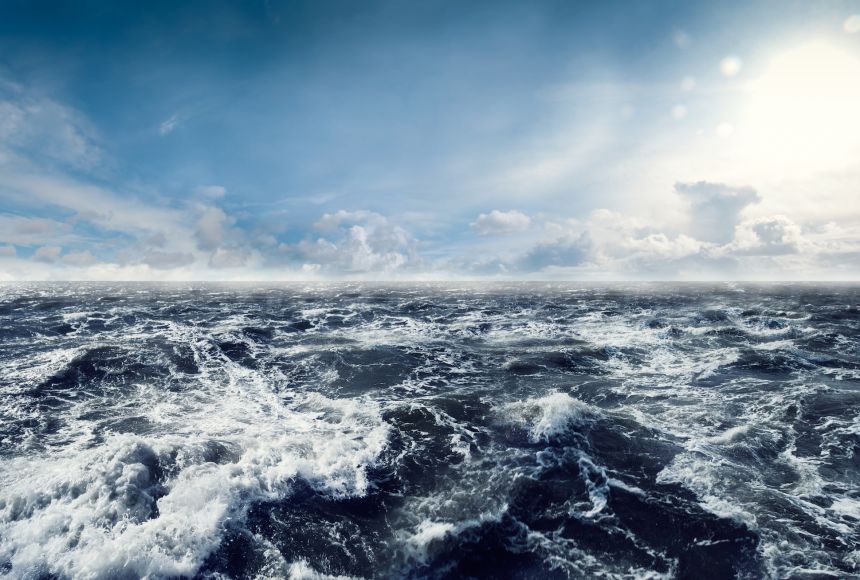More than two centuries ago, John Adams proclaimed, “The sea and it’s treasures are the common property of all men.” At that time, the entire world population was barely 800 million. Today it hovers around 8 billion souls. Could the treasure to support such population growth be coming from the sea?
Back in Adams’ day, the world knew little of minerals beyond the most basic of elements; knew next to nothing of fossil fuels; with the exception of whaling, harvested only the near coastal waters with hand drawn nets and spears; and an “oceangoing” vessel back then would be dwarfed by even a modest version of a modern private yacht.

Today we have gargantuan floating and fixed drilling platforms like Berkut off the Russian coast, weighing in at over 200,000 tons and reaching miles down into the sea and then further miles into the seabed to recover oil and gas, while every square mile of sea water itself contains 150 tons of dissolved minerals of endless varieties. Meanwhile, the world’s combined factory fishing fleet with nets measured in acres, could ⎯if not for myriad international rules and quotas⎯ literally fish the oceans bare.
Mr. Adams had little more than an early Farmer’s Almanac to make meteorological forecasts, while today the world’s oceans are replete with tens of thousands of buoys collecting all manner of weather and oceanic data, all fed into massive banks of computers programmed with intricate algorithms to provide accurate weather models used to make sea travel safer and worldwide weather prognostications for all applications more dependable. The oceans, above all things, make the weather.
And that same Founding Father, standing on a Virginian beach and casting his gaze seaward, could not possibly have conceived of the enormity of that which covers three-quarters of the planet, keeping submerged and hidden the highest mountain ranges on the planet and concealing the six miles deep and utterly crushing depths of a place like the Challenger Deep off of Guam, or closer to home, the nearly as deep Milwaukee Deep located just north of Puerto Rico. On average, the depth of all the blueness or greenness out there the world over is about 12,000 feet. And we know more about the surface of the moon than all those depths.
And in Mr. Adams’ day, the digging of a shallow canal from the hinterlands to the population centers to facilitate the movement of small wooden barges filled with agricultural products was considered a feat of then modern technology. What in the world would those ditch diggers think of the Panama Canal, which literally bisected a continent? Could they even conceive of a place like Dubai in the U.A.E where they have literally built tens of square miles of new islands, artistically molded into the shape of giant palm trees? Or the Japanese island airport of Kansai, able to handle the worlds largest aircraft and literally built one massive barge load of boulders at a time, rising from the sea floor like a volcanic island forming in fast motion? And as the Continentals ran inland for higher ground when coastal storms approached and began ravaging the beaches and harbors, would they ever imagine a place like the Netherlands where exists The Maeslantkering, a closable storm surge barrier who’s dual gates span some 1,500 feet and literally close off the ravages of the North Sea storms waves and surges from the waterways leading into one of the worlds largest ports, the Port of Rotterdam.
But knowing all those things as we do now, how do we reconcile with it all being “common property?” Does that include the sharing of the technology that has resulted in the taming and commercial subjugation of the seven seas? And now that we can drill, dredge, gate and net all that treasure, it starts becoming a matter of allocation: who gets what, how much, and why? Such questions are well worth pondering, for as the seas and it’s “treasures” goes, so goes our own history and fortunes. As stewards and exploiters of the vast majority of our planet, most of which still remains mostly unexplored, it’s fascinating, exciting and somewhat humbling to imagine: just what manner of treasures remain to be discovered?
